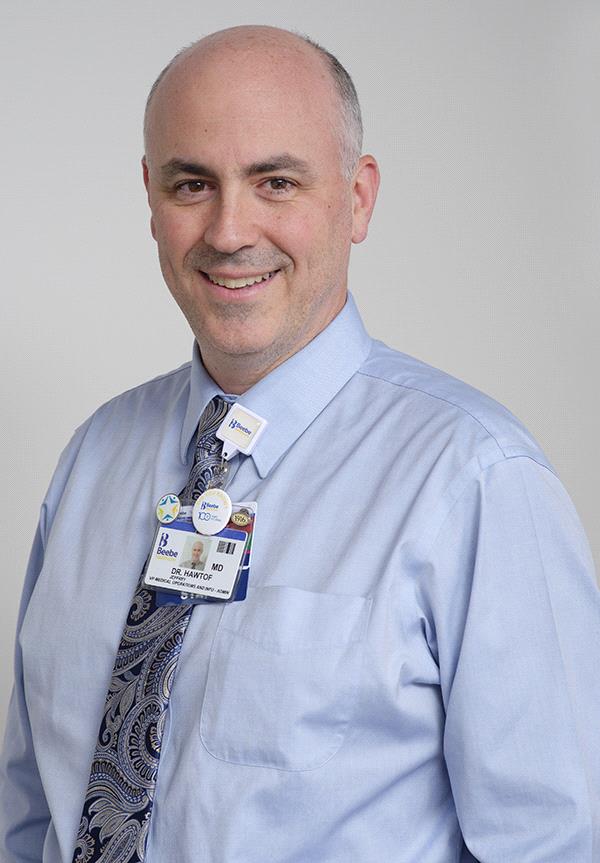Google can provide health data, if not health wisdom
Doctor can put internet research in context for you

Every day, my patients research their health problems online and bring me their ideas about what might be wrong.
Perhaps they’ve lost a little weight, feel tired, and then come to me, convinced that they have a dire ailment.
The data they’ve collected is not wrong, exactly — fatigue and weight loss are indeed symptoms of potentially serious conditions. However, without a physician’s physical assessment, the information gathered online can also not be considered to be fully true.
In many cases, there are other symptoms, ones that point to a less serious condition, that the patient didn’t realize were connected.
That doesn’t mean the online research was a mistake.
First, with the proliferation of online health information and increasingly easier access, telling people to ignore the internet as a source of insight into their health is neither realistic nor productive.
Second, what patients read online is often a jumping-off point to a productive discussion. I enjoy it as an opportunity to give my patients a deeper view of their health. The end result is often an educated patient who is more engaged in their health.
I caution patients, however, to be careful when making rash health decisions solely based on their internet research. There are right ways to use health information you find online and many wrong ways.
Right data, wrong conclusion
Even when health information is correct and from a reputable source, it’s easy to draw misleading conclusions.
Consider side effects, those unwanted byproducts of medication that are listed prominently in advertising and pill bottles. Avoiding unpleasant ones is an understandable goal, and serious side effects are often a reason to talk to your doctor.
However, not all side effects are created equal. Headache is listed as a side effect of anti-headache medicines in part because some people who take the drug still have a headache after taking the medicine. This makes sense because no medicine is perfect, but that does not suggest, of course, that the drug caused the headache.
At other times, side effects are indeed a result of medication, but the desired effect often outweighs the side effect.
For example, let’s say you sometimes feel nauseated after taking medication to treat high blood pressure. It’s easy to ignore the main effect of the drug, which is effectively invisible to you, and stop taking it.
However, would you rather have a chance of nausea or a higher chance of stroke, heart attack, or other potentially fatal condition? Not a hard choice if you think about it like that. The key message is to discuss your concerns about your medications with your doctor first, and not to just stop taking them.
Medicine is personal
Though data is a core part of medicine, it’s not the only part. Each patient is unique and comes with their own health issues that must be considered, along with their family history and their lifestyle — all of which a doctor knows, but the search results don’t.
Often, a diagnosis or a prescription rests on these extra factors.
Your physician can see you as a whole person and is better suited to understand complicated interactions among behavior, medications, family history, and other elements of your health.
In other words, it’s not all about getting the right answers; you also have to ask the right questions.
And, at times, this online research can help a physician develop possible diagnosis they did not initially consider.
Emotional distance
There’s a common piece of advice in medical school: Don’t diagnose yourself or a family member.
That’s because it’s impossible to impartially weigh the facts when there are a bunch of complicated feelings in the way.
When you Google your own symptoms, either unfounded fear of the worst or naïve optimism may color your conclusions. Our minds are all too willing to pay more attention to possible negative outcomes, no matter how rare.
Doctors have emotions too, of course. And though it’s impossible to be perfectly rational, we at least have some emotional distance and a more realistic idea of what is and isn’t a likely diagnosis in each person’s case.
Help me, help you
Although the conclusions that people make from the information they read on the internet is often not correct, the discussions with their physician about their concerns are often healing. The research that a patient does can create anxiety and worry. As a family physician, I can relieve those concerns with a good discussion. I use that time to educate, discuss their health concerns, and improve their emotional well-being as well as their physical well-being. It gets us both on the same page.
Overall, online research is not a bad idea when it’s paired with education from a medical professional to put it in context that makes it work for you.

Jeffrey Hawtof, MD, FAAFP, is Chief Medical Officer at Beebe Healthcare and practices family medicine on a part-time basis at Beebe Family Practice Beacon in Rehoboth. He is board certified in family medicine with a Fellowship from the American Academy of Family Physicians. To learn more about the services at Beebe Family Practice Beacon, call (302) 644-0690. If you are looking for a new physician, use the Beebe Find a Doctor system: www.beebehealthcare.org/find-a-doc.
To find out how Beebe Healthcare is creating the next generation of care for the community, go to www.nextgenerationofcare.org.
